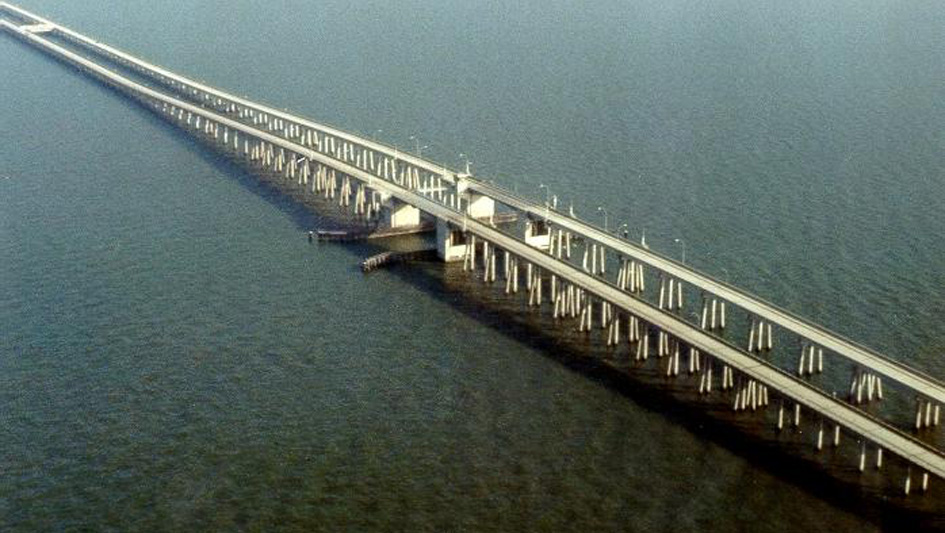By Glynn Wilson –
MOBILE, Ala. — One of new president Donald Trump’s biggest issues during the campaign was his promise to rebuild America’s “crumbling” infrastructure.
People who watch politics closely seem to think this may be the one good thing Trump might be able to accomplish out of all his zany Twitter campaign promises — many of which he has already broken in his first week in office — especially if he were to go against conventional wisdom and fund new sustainable energy projects.

President-elect Donald J. Trump returns to Mobile, Alabama, in last stop on ‘victory tour.’: Glynn Wilson
Of course President Barack Obama tried to accomplish this by sending several jobs bills to Congress over the past eight years. The Republicans in Congress would never cooperate, unwilling to give the first African American president in U.S. history a chance to succeed and provide jobs.
The stated basis of the opposition was always about the “bloated size of the federal government” and the Republican pledge never to raise taxes. Clearly it takes federal revenue from taxes to build roads and bridges — unless the public wants to pay tolls everywhere they travel.
In the first step for the new administration to try to keep this promise, the Trump transition team asked the National Governor’s Association to recommend “shovel ready” projects the Trump administration could “reference,” apparently in speeches and Twitter tweets.
That list, Emergency and National Security Projects, has now been made public.
Considering how Trump chose which states to visit in his “victory tour,” and how authoritarian politicians tend to govern based on a “spoils system” instead of a “merit system,” something we know a lot about in Alabama, the home of George C. Wallace, political observers believe Trump will award projects for states he won in 2016. States that voted for Hillary Clinton might be penalized.
So it came as a clickbait surprise to the local Newhouse media in Alabama when the state was left off the list, since Trump won the state’s nine electoral votes by a whopping 62 percent of the vote.
But it turns out the ommission was not Trump’s fault. The state’s less than competent governor and his spoils system staff failed to effectively communicate a priority list to the National Governor’s Association.
There was “mixed communications,” whatever that means, between Bentley’s office and the association, so Alabama projects were not included in the list.
A spokesman with the state Department of Transportation, Tony Harris, said his office submitted the priority list to Bentley’s office, but that it was up to the governor’s office to “take it from there.”
A Bentley administration priority list names the $850 million Interstate 10 Mobile River Bridge project as the state’s top priority, followed by the $5.2 billion Northern Beltline project around Birmingham in Jefferson County, already in progress. The Mobile project calls for a new six-lane bridge with 215-feet of air draft clearance across the Mobile River along with a widening of I-10 from four to eight lanes in Mobile and Baldwin counties. Other projects were submitted for Tuscaloosa and Montgomery counties.
The new bridge crossing for Mobile Bay is not without local opposition. While advocates say it is needed to ease commuter rush hour traffic jams and aid in hurricane evacuations, some critics have questioned whether the traffic issues merited a nearly $1 billion investment.
Carol Hunter, a member of Save Mobile’s Waterfront, a pressure group opposed to the bridge, said Mobile was being asked to swallow a blight-causing bridge so Eastern Shore residents from Baldwin County could have an easier commute.
The proposed expansion to the I-10 through Mobile does not rank among the top 35 interstate bottlenecks in the country, according to a 2008 federal study, while five other places along I-10 did make the list in other states.
“You don’t destroy your city for a few hours of congestion a year,” Hunter said.
Todd Stacy, a spokesman for Montgomery Republican House member Martha Roby, said the existing list is “very preliminary.”
”Any funding for a major infrastructure construction initiative would need to be approved (and funded) by Congress,” he said. “ There are many Alabama infrastructure projects worthy of consideration.”
U.S. Rep. Bradley Byrne, the Fairhope former Democrat turned Republican, has been carrying the water for the new Mobile River bridge for years.
“As soon as we heard about the situation, my office reached out to the new staff at the federal Department of Transportation to emphasize the need for the I-10 Bridge,” Byrne said in a statement. He did not receive a quick response from the Trump administration.
Projects being considered on the list handed to Trump’s team include many highway, rail and airport projects that had already been proposed, as well as routine waterway dredging projects, not exactly examples of a “crumbling” infrastructure. Where are the road and bridge replacement projects?
New Orleans had three projects on the list, including a $125 million upgrade to the Lake Pontchartrain Causeway, which might be a good example since it was damaged during Hurricane Katrina. But there’s also a $1 billion project for further dredging within the Mississippi River channel, not exactly a “crumbling” infrastructure problem.
“Yes, America’s infrastructure is in ICU and needs urgent care,” said David Underhill, an environmental and civil rights activist in Mobile. “No, the Mobile area does not need another bridge over the river downtown and additional traffic lanes crossing the bay — for the same reasons America does not need more pipelines carrying crude from northern oil fields to Gulf Coast refineries and ports.”
These are “Walking Dead” projects, he said, “stumbling forward simply to keep going as before without realizing their time has passed and leaving great damage in their wake. The coal-oil-fossil-fuel-suburban-sprawl-auto-commute vision of life is fading away. Economics is causing this fade, so is a dawning awareness that the environment cannot bear continuous assault by our current habits.”
Other parts of the world are seeing this and beginning to take appropriate steps, he said, while Trump tries to turn America around and march us back into the past.
“Including the proposed Mobile river bridge, with additional cross-bay I-10 lanes connected, on his list of infrastructure projects would recruit south Alabama into this backward surge,” he said. “With the existing tunnels and bridge, Mobile already has ten traffic lanes crossing the river. With I-10 and the causeway, Mobile already has eight lanes linking the city with the eastern shore of the bay. How many more lanes would ever be enough? New highways and bridges attract more traffic, which then requires new highways and bridges.”
This promotes suburban sprawl and amounts to a gigantic welfare handout for real estate developers, he said, while smothering fertile farm land with pavement and buildings and magnifying polluted runoff into the bay.
“Instead of accelerating pedal-to-the-metal in that dead-end direction, Trump and his local agents could launch infrastructure plans for a saner future,” he said. “These would include rebuilding city centers into attractive places to work and live, at affordable prices — not by driving the poor away with gentrification.”
He also suggested creating reliable mass transit systems “so people can get out of cars.”
“Then additional traffic lanes are not needed,” he said. “Changes like these are possible.”
He urged officials in Alabama and in the Trump administration to consider that. Maybe a high speed rail route from Pensacola to Mobile to New Orleans, even Houston and Dallas? The Chinese have high speed rail and a modern train system. So too Japan and Europe. Even Russia has a better system than the U.S. Perhaps Trump could get behind that?
Of course it would have to be paid for somehow. If not income taxes, how about corporate taxes on the fossil fuel industry?
“This more hopeful and healthy course would also generate more jobs, jobs, jobs,” he said. “This would foster a renewable energy economy and begin to wean the U.S. off the fossil fuel addiction.”
Herndon Inge III, a Mobile attorney, said there are estimates of between $850 million and $1 billion to construct the new Mobile River bridge, and it would take seven to 10 years to design and build it, likely increasing the final cost. The federal government would pay 80 percent of the cost, so the state would have to come up with $200 million, he said, amounting to two years of the entire annual budget of the Alabama Department of Transportation, “for a bridge that is contested.”
It is unlikely to be funded, he said, and the Federal Highway Tax Trust Fund is usually empty.
“So NOW there is time re-think the alternatives to cross the Mobile River, especially the route,” he said. “A lawsuit is already planned, ‘locked and loaded,’ to contest the route, likely to cause 5 additional years of delay. If you want a Mobile River Crossing, then negotiate a solution, which means a route AWAY from Mobile’s historical resources, and its downtown.”















IDA conference October 5, 2010- “trying to cure congestion by adding capacity is like trying to cure obesity by loosening your belt”